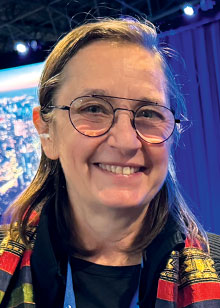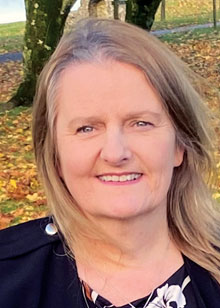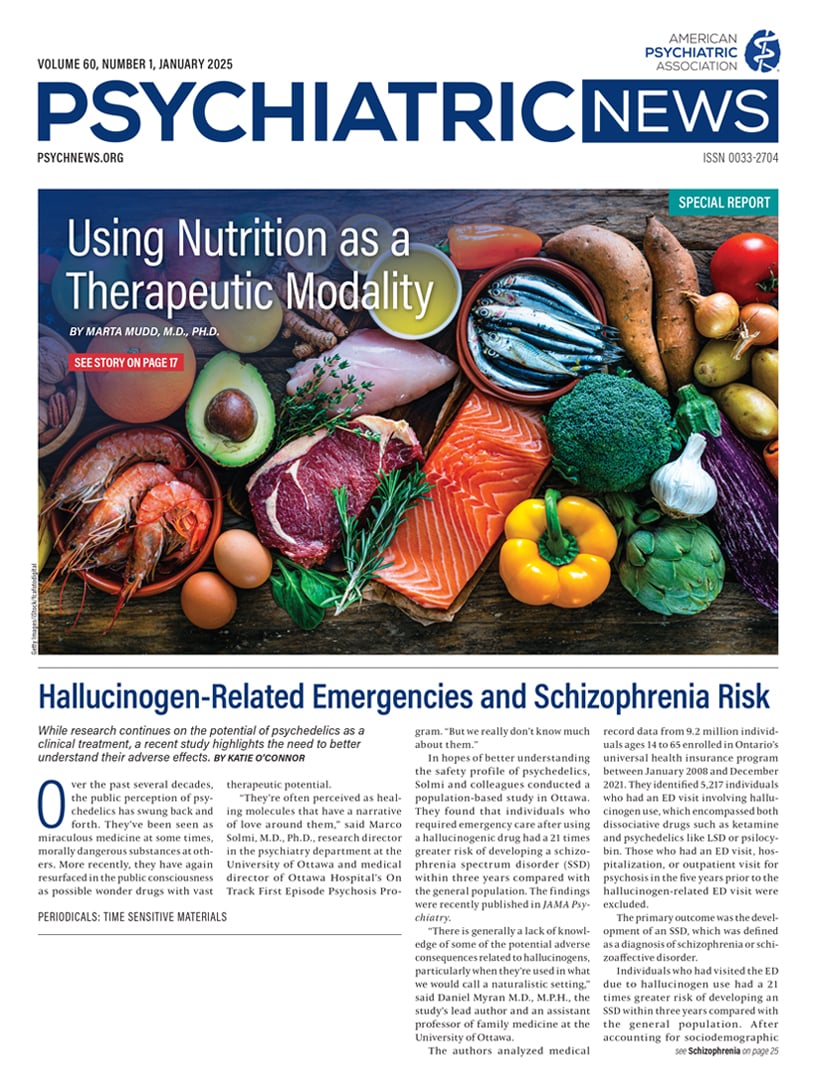In 2015, a patient in her late 40s who had been cycling between mental health professionals since she was 4 years old was referred to Bernadette Grosjean, M.D., who at the time was an associate clinical professor of psychiatry at Harbor-UCLA Medical Center. The patient had received numerous diagnoses, including schizophrenia, but after failing a trial of clozapine, that diagnosis was also scrapped. A colleague told Grosjean that the patient was “willful and lazy.”
It took five months for Grosjean to convince the patient’s parents to pay for a neuropsychological test, which came with a hefty price tag. “I distinctly remember the tone of the neuropsychologist informing me that the patient was clearly autistic,” said Grosjean, who is now in private practice and works for the nonprofit Special Services for Groups in Los Angeles. “She wasn’t willful or lazy after all.”
This experience triggered an avalanche of realizations for Grosjean. She began questioning her preconceived notions about autism and looking at her own life differently, thinking back to her childhood and early adulthood. Soon, her suspicions were confirmed with a formal diagnosis: She, too, was autistic.
“Since the beginning of my career as a psychiatrist, I have been able to collaborate with patients who my colleagues ran away from,” Grosjean said. “Looking back, I believe that a number of the patients I so connected with were autistic, which explains why I felt so at home working with them, and they with me.”
Grosjean is far from alone in this experience. Within the organization Autistic Doctors International (ADI), psychiatry is the second-largest specialty, according to founder Mary Doherty, M.D., an anesthesiologist and clinical associate professor at the University College Dublin School of Medicine.
An October
study issued in the
British Journal of Psychiatry Open found that psychiatrists who are unaware that they themselves are autistic may fail to recognize the condition in their patients. The researchers interviewed eight autistic psychiatrists from ADI to investigate their experiences in relation to recognizing autism. They identified three themes: recognizing oneself as autistic, recognizing colleagues as autistic, and recognizing patients as autistic.
All the participants reported that, once they were aware of their own autistic diagnosis, they were able to better recognize autistic patients, including those missed by colleagues. They also noted that, once self-recognition occurred, they began noticing that many of their colleagues, especially those specializing in autism or attention deficit/hyperactivity disorder (ADHD), might also be autistic but unaware.
Roadblocks to Self-Discovery
There are likely many factors that prevent psychiatrists from recognizing their own autistic diagnosis, said Doherty, the study’s lead author. Primary among them is the fact that diagnostic criteria focus on the deficits patients may experience, which could feel unfamiliar to a successful psychiatrist.
Doherty started ADI in 2019 simply as a Facebook group, but it quickly grew. “I remember when I was so excited that we had 30 members,” Doherty said. “Now, we have over 1,000.”
After she received her own autism diagnosis, Doherty said she essentially lived two lives—one in which she was a physician, and another in which she was open with her family and close friends about her diagnosis. Many ADI members are living similarly due largely to the pervasiveness of stereotypes and ableism.
“There is a very real and genuine fear of repercussions,” Doherty said. ADI members have been fired from their jobs as physicians or kicked out of medical school solely because of their diagnoses. ADI’s future research will explore why autistic psychiatrists do not disclose their diagnoses to their colleagues, what autistic psychiatrists can teach the field about autism, and the implications of receiving mental health care for autistic people.
“I have colleagues who are wonderful psychiatrists,” Grosjean said. “They’re published, they have numerous accolades, and yet they are terrified of coming out as autistic.”
Diagnosis Can Bring Empowerment
But as Doherty and her colleagues published in their study, and as autistic psychiatrists have realized themselves, there are huge benefits to recognizing oneself as autistic. Stacy Greeter, M.D., said that receiving a formal autism diagnosis helped her immensely. She finally understood why she had some sensory problems, for example, and felt more confident adjusting her environment to meet her needs.
Greeter was diagnosed with ADHD as a child but, like many autistic women, did not receive her autism diagnosis until she was an adult. She works with adults and children in a private practice that has offices in Sarasota and Tampa, Florida. Sometimes other psychiatrists will reach out to her to feel less alone because they can’t be open about their own diagnosis of autism.
“I love being an autistic psychiatrist, but I know not everyone has a positive experience, unfortunately,” Greeter said. “Being openly autistic makes me feel empowered to make a difference to my patients.”
Greeter said people don’t always believe that she’s autistic, an experience that Grosjean echoed. “Many people assume that if you are empathetic and compassionate, you can’t be autistic, and that’s how we end up with a lot of missed diagnoses,” Greeter said. Without a diagnosis, “we deprive people of the gift of self-knowledge and improved self-care.”
The Double Empathy Problem
In contrast to the stereotype that autistic people are not empathetic, Greeter and Grosjean described being uniquely able to connect with autistic patients whom their colleagues deemed difficult. They explain this phenomenon as the “double empathy problem,” a theory
developed by Damian Milton, Ph.D., who suggests that people with autism do not actually lack empathy, as non-autistic people may assume. Rather, there is simply a problem with understanding and communication between people of different neurotypes. Autistic people can often understand each other with ease.
“Traditionally, the assumption is that whenever there is a misunderstanding or miscommunication, the fault is on the part of the autistic person,” Doherty said. “But the double empathy problem explains that nonautistic people have just as much difficulty understanding autistic people as might be the other way around. In fact, autistic people understand each other much better than you might think.”
That’s why, according to Grosjean, it’s so important to foster a neurodiverse workforce to help address the needs of the growing population of autistic adult patients. Greeter added: “My favorite part of finally having my formal diagnosis is being able to tell my patients who are autistic and ADHD, especially the little ones. It can be so powerful for them to have an open and self-accepting role model.” ■


